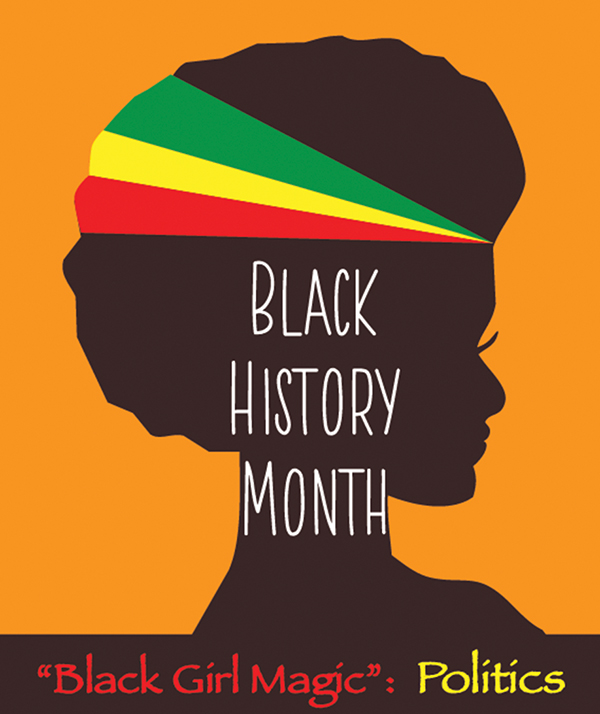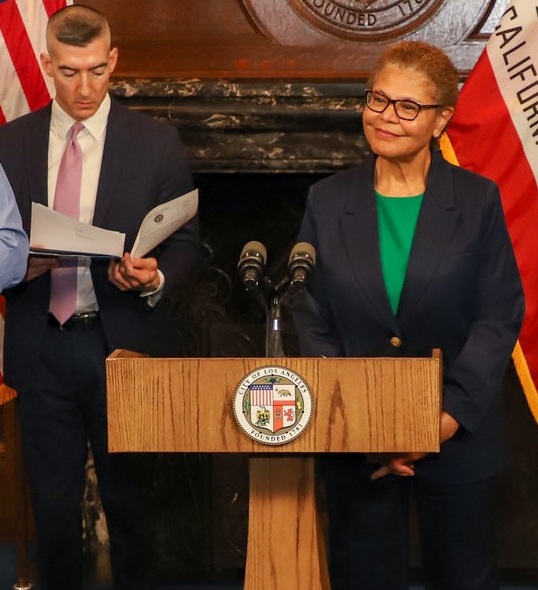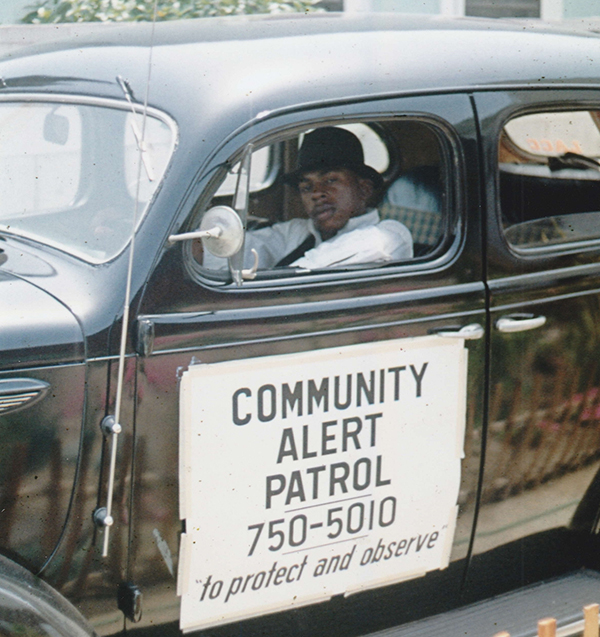By Janice Hayes Kyser
Contributing Writer
LOS ANGELES – Activist and newspaper editor Charlotta Bass strode boldly to the stage and prepared to address delegates at the national political convention where she was making a long-shot bid to become the second most powerful elected official in the nation.
“This is a historic moment in American political life,” Bass told some 2,000 supporters as she accepted the nomination for vice president of the Progressive Party in 1952. “Historic for myself, for my people, for all women.
Editor’s note: The phrase “Black Girl Magic” has dominated social media in recent months, fueled again last month when Kamala Harris, Michelle Obama and Amanda Gorman embodied Black elegance during the presidential inauguration of Joe Biden. So this Black History Month, we focus our coverage on the women trailblazers and “sheroes” from America’s past who paved the way for Harris, Obama, Gorman and millions of other Black Girl achievers today.
For the first time in the history of this nation, a political party has chosen a Negro woman for the second-highest office in the land.”
Historic indeed. Nearly 70 years before the goose-bump-inducing inauguration that made California’s Kamala Harris the first woman and first Black woman vice president of the United States, Bass was taking her passion from print to politics and opening doors for Black women in L.A. and across the country for decades to come.
It’s a role Black women have been playing with confidence and courage since Black folks started migrating to the land of palm trees and promise long before California became a state.
“Black women have always had the back of the Black community when it comes to political activism,” says L.A.-based activist and author Earl Ofari Hutchinson. Whether holding office, running campaigns or working on the sidelines, Hutchinson says Black women have always taken the long view and been organized and optimistic, even when the outlook was grim.
“The two main qualities of Black women are strength and determination,” Hutchinson said. “They have borne the brunt of triple oppression, being Black, and a woman and often times poor. This has fortified them with the unique strength to persevere and overcome adversity throughout history.”
That commitment to illuminating the humanity of Black people and the issues that affected their lives was what motivated Bass, experts say.
“Charlotta Bass was a stalwart champion for L.A.’s Black community,” says Los Angeles-based historian Alison Rose Jefferson. “She marshaled everything she could to improve the lives of her people. Without pioneers and trailblazers like Charlotta Bass and others, Kamala Harris doesn’t happen.”
Before her historic vice presidential bid, Bass was active in progressive politics, running for Los Angeles City Council and for U.S. Congress. She was the owner and editor of one of the city’s first Black newspapers, the California Eagle, from 1912 to 1951. Under Bass’ stewardship, the newspaper highlighted issues such as police brutality, restrictive housing, the Ku Klux Klan and civil liberties.
Her stalwart activism made her the subject of death threats, and landed her on the FBI’s Watch List, yet Bass was undeterred in her fight for equality and justice.
Black elected officials who followed in her footsteps brought that same tenacity and passion along with the ability to laser focus on “real people and real issues.”
“Each one paved the way for the next,” said Marne Campbell, associate professor and chair of African American Studies at Loyola Marymount University. “The understanding of legacy and leadership runs deep among Black women.”
One of the most prominent among those trailblazing political leaders is Yvonne Brathwaite Burke, the first Black woman to represent the West Coast in the U.S. Congress. The UC Berkeley and USC Law School graduate entered politics when she volunteered for Lyndon B. Johnson’a 1964 presidential campaign.
She was elected to the California State Assembly in 1966 where many of her early legislative efforts focused on juvenile issues and limiting wage garnishments. She served as vice chairperson of the 1972 Democratic Convention making her the first African American and first woman of color to hold that position. That same year, she was elected to the U.S. House of Representatives where she served for six years.
Back on the state level, Marguerite Archie-Hudson served in the California Assembly from 1990 to 1996, during which time she was a vocal advocate for minority education and an outspoken critic of Proposition 209, which outlawed affirmative action in California college admissions. Prior to her stint in the Assembly, Hudson served as an education staffer for Burke.
Another groundbreaking Black Los Angeles politician was Diane Watson, the first Black woman to serve in the California State Senate, where she served for two decades. Watson went on to serve the state in Congress where she represented California’s 33rd Congressional District, which includes much of the central part of the city, from 2002 until 2011.
Watson, who began her public service career on the Los Angeles school board, was a passionate advocate for health care for the poor and children.
Pioneering educator Rita Walters, the first black woman elected to the Los Angeles City Council, was a former LAUSD teacher and longtime civil rights activist who served the city passionately for more than a decade before her seat was filled by another trailblazing Black woman, Jan Perry. Perry served the 9th District from 2001 to 2013, tackling issues of obesity by helping to enact restrictions on fast food, funding public parks and encouraging more grocery stores to open during her tenure.
Today’s elected officials such as U.S. Reps. Maxine Waters and Karen Bass, State Assemblywoman Sydney Kamlager-Dove and Los Angeles County Supervisor Holly Mitchell have taken the baton from their pioneering forebears and continued to fight for inclusion and equity on behalf of Black Los Angeles.
Rachel Brashier, board president of the Black Women’s Democratic Club and deputy chief of staff to L.A. City Councilman Marqueece Harris-Dawson, said true democracy could not survive without the fearless contributions of Black women.
“Democracy lives and breathes because Black women show up,” says Brashier, a native Angeleno whose organization is dedicated to creating a fertile pipeline of Black women to hold elective office throughout the state.
With the number of Black women politicians on the rise and acknowledgment of their power at the ballot box, experts say Black women are finally getting the recognition they have long deserved.
“If not now, when?” asks LMU professor Campbell. “California became a state in 1850 and before that Black women have been raising their voices to uplift their people and change the complexion of politics in Los Angeles and across the state.”
“Black women know our power,” she adds. “If it wasn’t for the work and dedication of Black women over many, many years, we wouldn’t be where we are today.”











